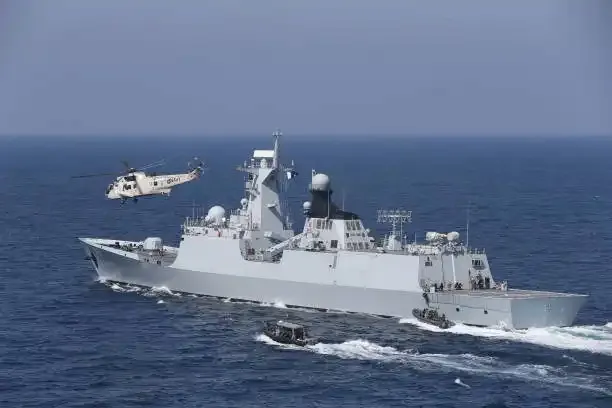Shopping cart
Your cart empty!
Terms of use dolor sit amet consectetur, adipisicing elit. Recusandae provident ullam aperiam quo ad non corrupti sit vel quam repellat ipsa quod sed, repellendus adipisci, ducimus ea modi odio assumenda.
Lorem ipsum dolor sit amet consectetur adipisicing elit. Sequi, cum esse possimus officiis amet ea voluptatibus libero! Dolorum assumenda esse, deserunt ipsum ad iusto! Praesentium error nobis tenetur at, quis nostrum facere excepturi architecto totam.
Lorem ipsum dolor sit amet consectetur adipisicing elit. Inventore, soluta alias eaque modi ipsum sint iusto fugiat vero velit rerum.
Sequi, cum esse possimus officiis amet ea voluptatibus libero! Dolorum assumenda esse, deserunt ipsum ad iusto! Praesentium error nobis tenetur at, quis nostrum facere excepturi architecto totam.
Lorem ipsum dolor sit amet consectetur adipisicing elit. Inventore, soluta alias eaque modi ipsum sint iusto fugiat vero velit rerum.
Dolor sit amet consectetur adipisicing elit. Sequi, cum esse possimus officiis amet ea voluptatibus libero! Dolorum assumenda esse, deserunt ipsum ad iusto! Praesentium error nobis tenetur at, quis nostrum facere excepturi architecto totam.
Lorem ipsum dolor sit amet consectetur adipisicing elit. Inventore, soluta alias eaque modi ipsum sint iusto fugiat vero velit rerum.
Sit amet consectetur adipisicing elit. Sequi, cum esse possimus officiis amet ea voluptatibus libero! Dolorum assumenda esse, deserunt ipsum ad iusto! Praesentium error nobis tenetur at, quis nostrum facere excepturi architecto totam.
Lorem ipsum dolor sit amet consectetur adipisicing elit. Inventore, soluta alias eaque modi ipsum sint iusto fugiat vero velit rerum.
Do you agree to our terms? Sign up

In a move signalling Islamabad’s renewed maritime and diplomatic ambitions, Pakistan Navy Chief Admiral Naveed Ashraf has arrived in Dhaka for high-level talks with the Bangladesh Armed Forces, marking the most significant military contact between the two nations in over five decades.
The visit, coinciding with the docking of a Pakistani naval warship in Chittagong Port for the first time since 1971, has drawn close attention from regional observers, particularly in New Delhi, which views the Bay of Bengal as a cornerstone of India’s strategic and security architecture.
Admiral Ashraf’s trip is the highest-level Pakistani military visit since the interim government under Chief Adviser Muhammad Yunus took charge in August 2024, following the ouster of former Prime Minister Sheikh Hasina.
The Pakistani delegation, which included senior naval and diplomatic officials, held meetings with top Bangladeshi defence authorities and visited key naval installations in Dhaka and Chittagong. Discussions reportedly focused on maritime cooperation, officer training exchanges, and regional naval security frameworks.
This outreach forms part of Islamabad’s broader diplomatic re-engagement in South Asia, aimed at rebuilding relationships with neighbouring countries amid shifting geopolitical equations in the Bay of Bengal and the wider Indo-Pacific region.
The arrival of the PNS Shamsheer, a multi-role frigate of the Pakistan Navy, in Chittagong Port marks a symbolic milestone. It is the first Pakistani naval vessel to dock in Bangladesh since 1971, when the two countries’ relationship was severed following the Liberation War.
The warship’s visit included a joint naval ceremony, crew interactions, and public outreach events organised by the Bangladesh Navy. Defence officials in Dhaka described the visit as “a gesture of friendship and mutual understanding,” while Pakistani sources framed it as a “revival of historic ties between maritime partners.”
For Pakistan, the docking carries deep symbolic and strategic value, representing an attempt to re-establish its naval presence in a maritime zone historically dominated by India.
Since the transition to the Yunus-led interim government, Bangladesh’s foreign policy posture has shifted noticeably, with a greater emphasis on multi-alignment rather than exclusive proximity to India.
The new government has sought to diversify defence and trade ties, engaging not just with Pakistan but also with China, Turkey, and ASEAN members. This strategy is viewed as an effort to strengthen Dhaka’s strategic autonomy amid intensifying power rivalries in the Indo-Pacific.
However, the renewed contact with Pakistan carries sensitive undertones given the historical and political legacy of 1971 and the emotional resonance that still defines bilateral perceptions.
For New Delhi, Pakistan’s outreach to Dhaka — especially in the naval and defence domain — is being closely monitored. India has long regarded Bangladesh as a key partner in its Neighbourhood First and Act East policies, with deep cooperation across trade, defence, and counterterrorism.
The re-entry of Pakistan’s military into Bangladesh’s strategic landscape raises concerns about potential Chinese mediation or indirect influence in the Bay of Bengal — a region critical to India’s maritime security and regional connectivity.
Analysts in India suggest that Pakistan’s naval diplomacy could be part of a wider strategy coordinated with Beijing, aiming to extend influence along the Eastern Indian Ocean littoral. The presence of a Pakistani warship in a Bangladeshi port, they note, “has implications beyond symbolism.”
The Bay of Bengal has increasingly become a theatre for maritime rivalry, with India, China, and now Pakistan seeking influence. While Bangladesh has maintained a neutral stance, its willingness to host the Pakistani Navy underscores a new pragmatism in Dhaka’s foreign policy.
Experts suggest this could either evolve into a temporary diplomatic experiment or lay the foundation for a broader South Asian realignment if Pakistan and Bangladesh continue to expand defence exchanges.
Admiral Ashraf’s visit, though framed as a goodwill gesture, reflects Islamabad’s calculated return to South Asian diplomacy, leveraging historic ties and regional uncertainty to rebuild lost influence.
For Dhaka, the engagement signals an assertive foreign policy pivot, one that seeks to engage all powers without aligning exclusively with any.
Whether this marks a new era of cautious cooperation or the start of renewed strategic competition in the Bay of Bengal remains to be seen. But for now, the image of a Pakistani warship docked in Chittagong — after 54 years — speaks volumes about the shifting tides of South Asian geopolitics.
12
Published: Nov 10, 2025